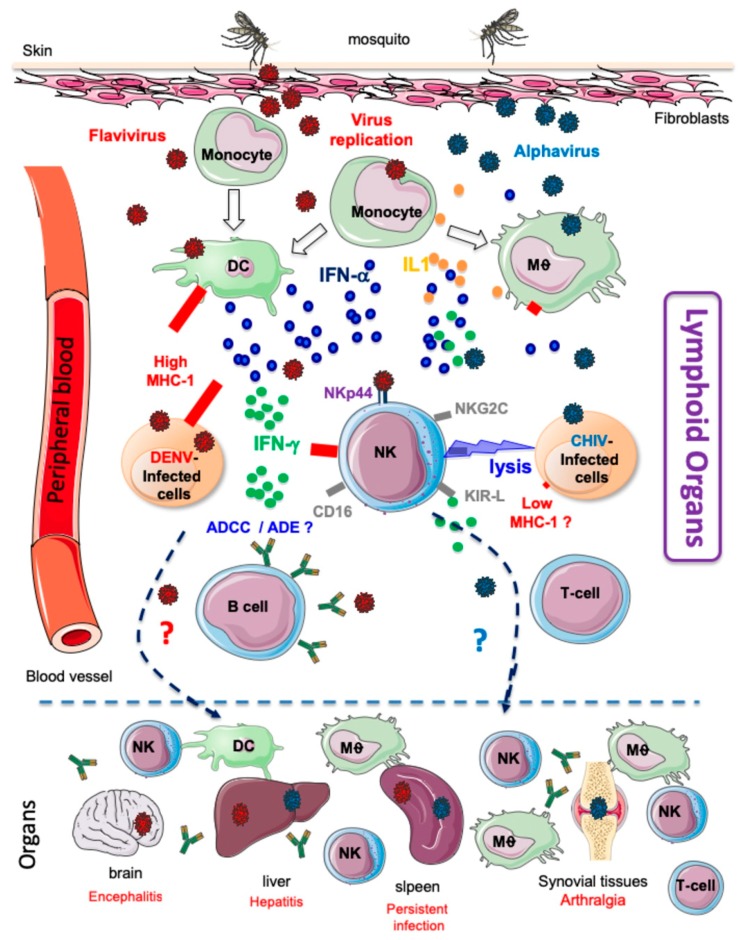Figure 2.
Virus dissemination, immune activation and clinical manifestations in patients infected by alphavirus or flavivirus. These viruses are transmitted through the bite of a female mosquito. The virus infects susceptible cells of the dermis, such as endothelial cells, fibroblasts and macrophages. Locally produced viral particles are then transported through the circulation to secondary lymphoid organs. This acute phase of infection is associated with the upregulation of the production of proinflammatory cytokines, such as IL-1β and IFN-α, that induce innate immune responses, including those exerted by NK cells. Through the circulation alphavirus or flavivirus disseminated also to different organs, including the brain, spleen, liver, joints and muscles. Peripheral and tissue-resident NK cells can directly fight infected cells by triggering cytotoxicity (alphaviruses) or massive production of IFN-γ (flaviviruses), which contributes to the control of infection and the generation of adaptive T cell immunity, as well as the production of protective antibodies and the induction of antibody-dependent cellular cytotoxicity. For other flaviviruses, such as DENV, antibody complexes are also associated with the triggering of antibody-dependent enhancement which has been linked to the development of more severe forms of disease.

